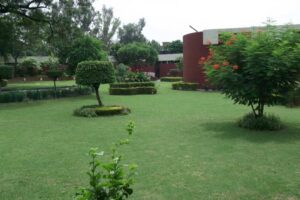Chandigarh may soon reach another milestone in its motto of “open to give, open to receive.” A group of parents, social workers and psychiatrists have been working hard to sensitise the UT Administration for the last two years to ensure compassionate living conditions for people with mental disabilities.
Due to an aging population and nuclear families, caregivers in Chandigarh often find themselves alone, helpless and concerned about the future of their children or siblings living with developmental disabilities like autism spectrum or mental illnesses like schizophrenia or bipolar disorder. The new laws of India, namely, The Rights of Persons with Disabilities Act 2016, and The Mental Healthcare Act 2017, specifically mention the ‘the right to community living’ of persons with disabilities.
A baseline survey conducted among 31 Chandigarh-based psychiatrists in 2019 found that there are around 400 persons living with mental health issues in the city who may need group/care home and around 70 of them need it urgently. A group home is an assisted-living facility for the mentally ill, much like an old-age home, but with the additional requirement of a psycho-social worker and counselors, therapists.
“My brother has severe autism, is non verbal and needs supervision to ensure his well being. My parents have been his primary caregivers so far and intend to do so as long as possible. I find that I’m not equipped to take care of him alone,” says Shreya Jain, sister to a 20-year-old man living with autism. “My parents and I know that a home like his own is our best bet. Growing up in Chandigarh, I realised that the city has the infrastructure to give my brother the care and support he deserves.”

A good care home should have ample green and open spaces which can be therapeutic to persons with mental disabilities. Indira Holiday Home in Sector 24 is one such place which the families and social workers have identified. They believe it is not only congenial but also located in the heart of the city, thus meeting the concept of integrated instead of segregated living for the disabled. The space provides ample possibilities to offer therapy, vocational training and workshops besides add-on residential facilities for people with disabilities and senior citizens, who can also be engaged to manage the place.
“There cannot be a better place for community / assisted living for persons with mental disabilities than Indira Holiday Home. In fact, the campus is large enough to be a cross-disability or even an ‘able disable all people together’ kind of place. It has the potential to become an internationally acclaimed project of integrated cross-disability community living in the city, if planned and executed well,” says Poonam Natarajan, former chairperson of The National Trust, a statutory body with the Union Ministry of Social Justice and Empowerment, and founder of Vidya Sagar, an organization for people with disabilities in Chennai. “I will be happy to offer any professional assistance with planning and conceptualizing this project, if required.”
Residents feel since the land and infrastructure of Indira Holiday Home belong to the UT Administration, major hurdles of cost and acquisition of property are taken care of. “As for the living expenses, one can operate on the ‘user pays’ principle for those who can afford to pay, and raise money for the economically weaker section,” says Dina Singh, a parent involved with the campaign for right to dignified community living.
Mental health advocate Aditya Vikram Rametra feels since there are several individuals in dire need of such homes currently, the city either needs a few different group homes or one large campus like Indira Holiday Home. “In terms of management and funding, it would be easier and cost-effective to provide different services in one campus. Instead of passing on the management of Indira Holiday Home to any NGO or private entity, UT Administration should solicit help from parents, professionals and national, international organisations while firmly holding on to the ownership of the place,” he adds.
It is sad that a city matching western standards of infrastructure still doesn’t have decent assisted living facilities for persons with mental disabilities. However that might change soon. With its heart in the right place, the ‘City Beautiful’ may soon be known as the “City of Compassion.”
Manu Moudgil is an independent journalist and researcher.







Comments are closed.